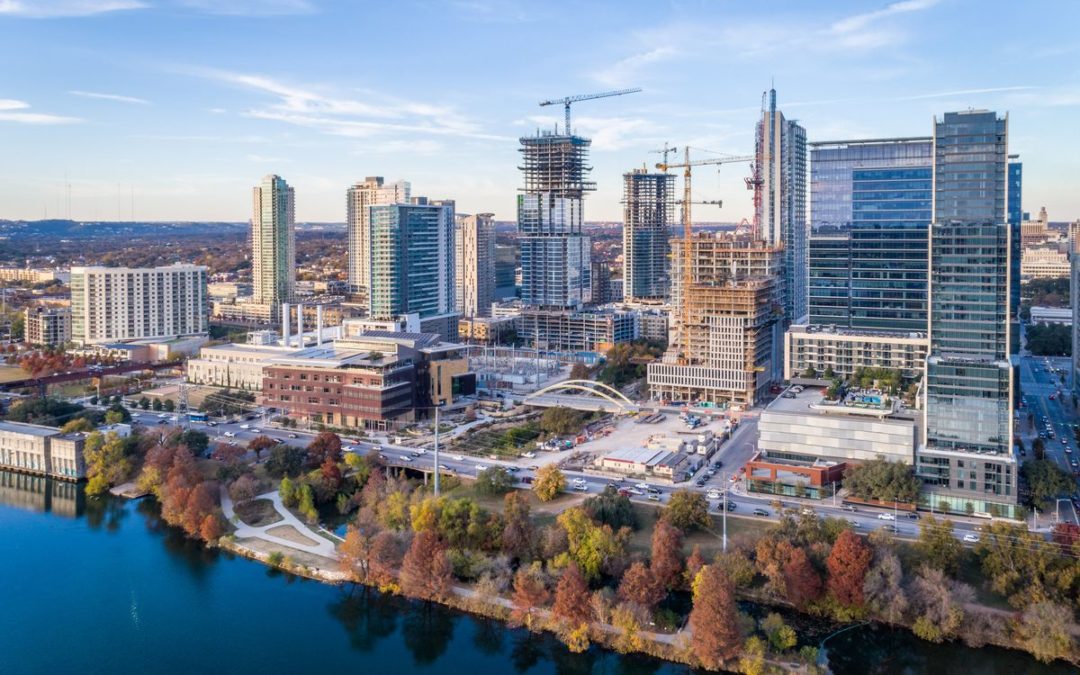Urban Land Institute and PwC released the much-anticipated Emerging Trends in Real Estate report. Nashville ranked No. 3 out of 80 U.S. cities for overall real estate prospects for 2020. This is the fifth consecutive year Nashville has made the Top 10 list.
With our rapidly growing population and more than 30 tower cranes currently dotting the city skyline, the high ranking will not surprise many Nashvillians.
Emerging Trends points out the highest-ranked markets for investment and development prospects are cities that “have successfully positioned themselves as interesting, lively places with ample employment opportunities and a good quality of life.”
No Signs of Slowing Down
Nashville certainly fits that description. We have a diverse economy, a welcoming business environment, 20-plus colleges and universities, tech growth, pro sports and a robust music and arts culture. More than 8,000 new jobs have been announced this year alone, thanks to Alliance Bernstein moving its headquarters here, Amazon building an operations center and Smile Direct expanding.
Nashville Area Chamber of Commerce Chief Economic Development Officer Courtney Ross told The Tennessean that investment interest in Middle Tennessee will not slow anytime soon. Yes, Nashville will continue to attract new companies and investment, but we must address our housing affordability and transportation issues to remain competitive for the long term.
The Emerging Trends report points out that “price recovery has so far outstripped household incomes that affordability has reached the breaking point, even in markets that previously boasted of the low cost of housing.”
Attainable Housing is a Challenge
Nashville’s booming growth has intensified the challenges of our housing affordability. Housing costs have increased and are outpacing Nashvillians’ income growth. Housing affordability conversations are occurring across the city.
Like other cities, Nashville is trying to find solutions to attainable housing. Organizations like Rebuilding Together Nashville and The Housing Fund are working to help residents repair and remain in their aging homes and assist others in attaining an affordable home built on a community land trust. Others are looking to modular, factory-built housing that lowers prices through more efficient assembly and controlled labor costs. (Read about our modular-built condominiums at Alloy on Tech Hill here.) Some cities are allowing accessory dwelling units (ADUs), smaller homes usually built in the backyards of existing homes. It provides an attainable rental unit and some modest densification. Current codes prevent ADUs in Nashville.
Two projects recently recognized for best practices in affordable and workforce housing are The Lindley in Chevy Chase, Md., and The Watson in Quincy, Mass. Both are good examples of public/private partnerships and you can read more about them here.
Transportation Will Keep Us Thriving
Transit is another key to keeping Nashville thriving, attractive for investors and more livable for its residents. We need a comprehensive public transportation system that connects all our neighborhoods and supports our growing urban greenway network. A good transit system will help ensure our long-term success.
Nashville is the largest metro area without a dedicated funding stream for transit. Davidson County voters rejected a transit referendum last year. Since then, bus service has been reduced, repairs have been put on hold, and traffic congestion has increased.
The good news is we are a year wiser and better informed. Transit was one of the top issues during our recent mayoral race. The conversation is no longer “if” but “when” will we do something about transit and mobility. The election is now behind us. Congestion is impeding us. The community is ready for a solution.
What creative solutions do you have for attainable housing? What transportation initiatives have been successful for your city?

